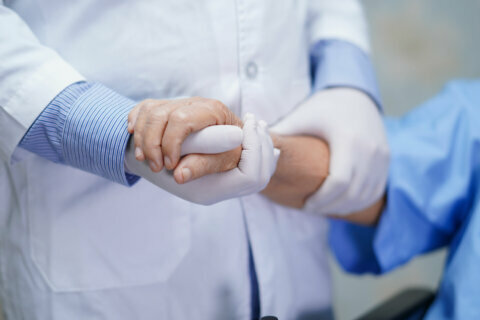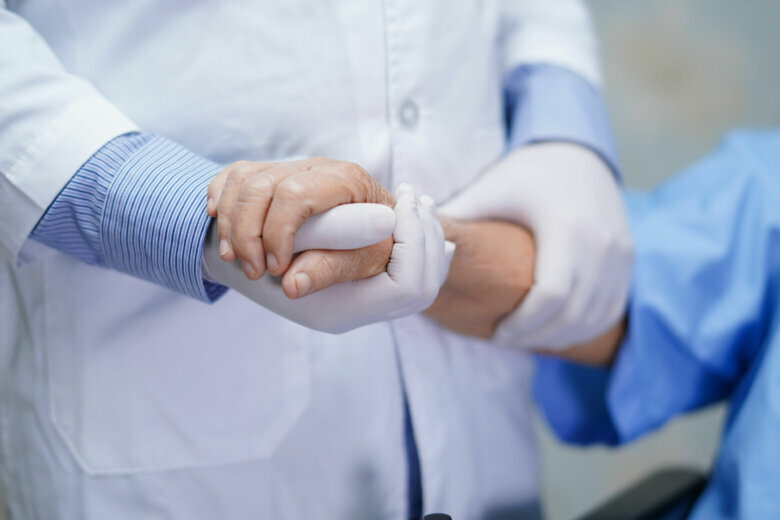While many people are staying home to flatten the curve, D.C.’s nurses are on the front-line of battle as they care for patients with the deadly coronavirus.

“I’ve never seen anything like this,” said Debra Washington, 64, a nurse at United Medical Center in Southeast D.C.
For Washington, a career in nursing is a calling she answered 39 years ago, and has done it ever since. Washington admits her anxiety can be high at times, as she helps patients suffering from the illness.
Washington said each day the number of patients coming in with the virus grows. She has seen several of her patients transported to the intensive care unit at the hospital, with some eventually dying from COVID-19.
“You don’t have to be physical with this,” Washington said. “This thing is in the air.”
Washington also realizes how difficult the situation has been on the patients because as they recover, they are in isolation and don’t have their families by their sides. Washington said she is always mindful of that and does what she can.
In addition, Washington helps to facilitate phone calls between the sick and their families, just so they can hear a familiar voice.
“It’s just very difficult,” Washington said.
She said the precautions nurses must take are unlike anything she has seen before during her time as a nurse. Before seeing a patient, Washington said she must outfit herself with an N-95 mask and a surgical mask over that, followed by goggles and a face shield.
She also puts on gloves and foot coverings before entering a patient’s room — in the end, so much equipment that it can quickly become difficult to work and even breathe.
“Your breath is hot. You’re getting hot. Your goggles, you know, they tend to kind of fog up,” Washington said. “I’m thinking to myself you know, my gosh, you know, I just need to hurry up. I need to get out. I need to get out of here.”
- Sign up for news alerts from WTOP
- Where to get tested for COVID-19 in the DC region
- Nurses from all over are coming to Md. to help fight virus
- Nurses push back on pressure to work without right equipment
- COVID-positive or not, patients can be discharged from hospitals
- Coronavirus test results in D.C., Maryland and Virginia
- Coronavirus FAQ: What you need to know
- Coronavirus timeline: Key dates as the virus spread in DC, Maryland and Virginia
Once out of the room, Washington has to shed her potentially contaminated equipment and thoroughly wash her hands. This process happens multiple times a day during her 12-hour shift.
A nationwide mask shortage is also being felt at her hospital, as she only has one N-95 mask which she can use in a day. Before the pandemic, masks would be discarded after each patient visit.
Washington also copes with anxiety over concerns for her own health, as someone deemed high risk because of her age and high blood pressure. Add on to the worry she could bring the illness home to her family.
“I still have to come home to my family, so can I be a carrier and bring something home to my family, and that makes you anxious,” Washington said.
At UMC, Washington said only nurses who are symptomatic can be tested for the virus.
Washington, who is also vice president of the DC Nurses Association, said her hope is the hospital will adopt a policy allowing for testing to be offered to nurses requesting it regardless of whether they’re symptomatic.
WTOP has reached out to United Medical Center about its testing procedures.
“It would make us feel better if we had been tested, or if we could be tested,” Washington said.
Washington said her family has asked her if the risk is worth going back into work each day and she said right now, the answer is yes.
“You just keep coming back just because you want to be there. You want to help.”









